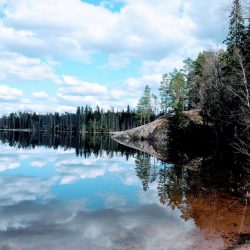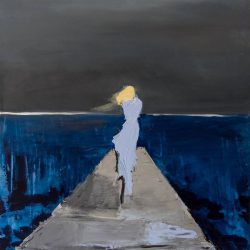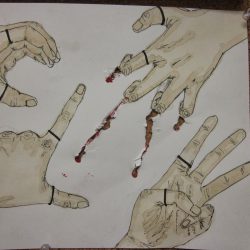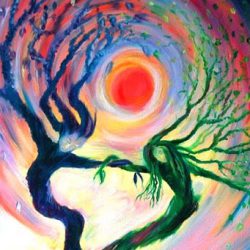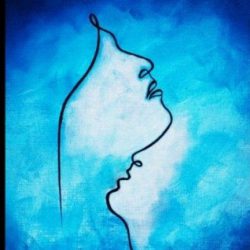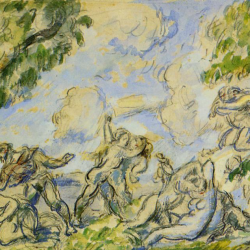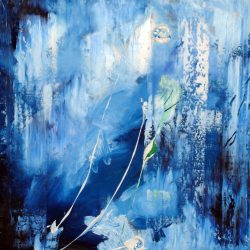- HOME
- ABOUT ME
- movies
- MEDIA
- L.Onerva
- Eino Leino
- Eeva-Liisa Manner
- Erään Opon päiväkirja
- Elämänkenttäni
- Elämäni ”viiva”
- Käyttöteoriani – se miten minä ohjaan
- Kulttuuritietoinen ja kansainvälistyvä ohjaus
- Ohjauksen järjestäminen maahanmuuttajakoulutuksessa
- Ohjauksen yhteiskunnallinen viitekehys
- Ohjaukäsite
- Oma opiskeluorientaatio
- Opiskelijoiden yksilöllisyys ohjauksessa
- EETTISET KYSYMYKSET
- Psykososiaalisen kehityksen teoria
- Suhteeni erilaisuuteen ja tehtäväni opinto-ohjaajana
- Opinto-ohjauksen ja erityisopetuksen yhtäläisyyksiä ja eroja
- Kehitykseni opinto-ohjaajana
- Maahanmuuttajan uraohjaus
- Maahanmuuttajien ohjaus ja neuvonta: kuka, mitä, miten?
- Ohjauksen tulevaisuus
- Elämänkenttäni
- Mariana Marin
- Claudiu Komartin
- Mariana Codrut
- Roland Erb
- Romanian poetry
- ESSAYS
- STORIES
- CLASSIC POETRY
- CONTEMPORARY POETRY
- TRANSLATED POEMS
- READING POETRY
- CONTACT
- translated Italian-English
- translated Italian-Romanian
- translated Spanish-English
- translated Spanish-Romanian
May, 2021
MANCHMAL EIN NACHMITTAG / SOMETIMES AN AFTERNOON / UNEORI O AMIAZA / JOSKUS JOKIN ILTÄPÄIVÄ
POSTED IN Roland, translated German-English May 22, 2021
MANCHMAL EIN NACHMITTAG / SOMETIMES AN AFTERNOON / UNEORI O AMIAZA / JOSKUS JOKIN ILTÄPÄIVÄ
Wieder und wieder
der Kampf um den winzigen Alltag,
der vage Versuch eines Orts,
der Denken und Handeln
erlaubt und schützt.
Das übliche Ohnmachtgefühl,
dennoch
manchmal ein Nachmittag,
der sich anfühlt ähnlich
wie Glück.(aus: Trotz aller feindlichen Nachricht)
Roland Erb
—————————————-
Sometimes an afternoon
Again and again
the struggle for the tiny everyday life,
the vague attempt at a place
that allows and protects
thinking and doing.
The usual feeling of powerlessness,
yet
sometimes an afternoon
that feels like
happiness.(from: Despite all hostile news)
—————————————-
Uneori o amiazaIara si iara
lupta pentru mica viață de zi cu zi,
încercarea vagă într-un loc
care permite și protejează
gândirea și acțiunea.
Senzația obișnuită de neputință,
doar
uneori o după-amiază
care pare a semana
cu fericirea.(din: În ciuda tuturor știrilor ostile)
………………………………….
Joskus jokin iltapäivä
Taas ja taaskin
taistelu mitättömästä arkielämästä,
heikko yritys jossakin paikassa,
joka ajattelun ja toiminnan
sallii ja suojaa.
Tavanomainen voimattomuuden tunne,
kuitenkin
joskus jokin iltapäivä
joka tuntuu samalta
kuin onni.(Kokoelmasta : Kaikista uhkaavista uutisista huolimatta)
Translated by Maria Magdalena Biela
DER ÜBERLEBENDE / SUPRAVIETUITORUL / THE SURVIVOR
POSTED IN Roland, translated German-English May 18, 2021
DER ÜBERLEBENDE / SUPRAVIETUITORUL / THE SURVIVORWie unendlich dankbar
ich bin
für dies Überleben.
Mit dem zerfetzten Bein,
dem gelichteten Schädel,
der zerfressenen Lunge,
dem ausgenommenen Schoß,
der verdorrten Zunge.
Ich will
an die Zukunft
denken.
Roland Erb
……………………………Supraviețuitorul
Cât de infinit recunoscător
eu sunt
pentru această supraviețuire.Cu piciorul rupt
craniul golit,
plămânii corodați,
pântecul eviscerat,
limba ofilită.Vreau
la viitor
să mă gândesc.……………………………..
THE SURVIVOR
How infinitely grateful
I am
for this survival.With the torn leg
the cleared skull,
the corroded lungs,
the gutted lap,
the withered tongue.I want
to think about
the future.Translated by Maria Magdalena Biela
NACHGERAUNT / WHISPERED / SOPTIT / KUISKATTU
POSTED IN Roland, translated German-English May 18, 2021
NACHGERAUNT / WHISPERED / SOPTIT / KUISKATTU
Es war dir nicht bestimmt,
ein Ganzes zu werden,
die Glieder
strebten nach allen Seiten
im hastigen Lauf,
sie kamen gegenüber
nicht an.
Du wusstest nicht,
welchen Stern
du erhaschen solltest
von den ungezählt leuchtenden
rings um dich her.Roland Erb
——————————–
Whispered
It wasn’t meant for you
to become a whole,
the limbs
strove on all sides,
in a hasty run
without encountering
counterpart.
You did not know
which star
you should catch
of the countless shining ones
around you.…………………………..
Șoptit
Nu ți-a fost sortit
să devii un întreg,
Membrele
s-au straduit din toate partile,
într-o fugă grăbită,
negasindu-se.
Nu stiai
ce stea
ar trebui să prinzi
dintre cele stralucind fara numar
in jurul tău.…………………………..
Kuiskattu
Ei ollut kohtalosi
olla kokonainen,
Jäsenesi
pyrkivät kiirehtien joka suuntaan,
kohtaamatta koskaan.
Et tiennyt
mikä tähti
sinun piti saada kiini
kaikista niistä ympärilläsi
hohtavista.
Translated by Maria Magdalena Biela
VORSATZ / INTENT / INTENTIE / AIKOMUS
POSTED IN Roland, translated German-English May 18, 2021
VORSATZ / INTENT / INTENTIE / AIKOMUSMorgens, gleich nach dem Zähneputzen,
in der Nüchternheit
des Tages, der aufgraut
im kahlen Raum
mit Tisch und Stuhl und
dem sezierenden Blick
des Lichts
auf der ockerfarbenen Rieselwand,
scheu dich nicht, schreib
den entblößten
Text
ohne getünchte Hoffnung
und ohne
Zierat.ROLAND ERB
…………………………….
Intent
In the morning, right after brushing your teeth,
in the sobriety,
of the day that rises
in the bare room
with table and chair and
the dissecting gaze
of light
on the ocher-colored trickle wall,
do not be shy, write
the exposed text
without whitewashed hope
and without
ornament.…………………………….
Intenție
Dimineața, imediat după spalatul pe dinți,
în sobrietatea,
acestei zile care se aprinde
în incaperea goală
cu masă și scaun si
privirea disecatoare
a luminii
pe peretele de apa de culoare ocru,
nu fi timid, scrie
textul gol
fără speranță deghizata
și fără
ornament.…………………………….
Aikomus
Aamulla heti hampaiden pesun jälkeen,
päivän raittiudessa,
joka nousee
paljaassa huoneessa,
jossa on pöytä ja tuoli
ja valon leikkaavassa katseessa
okranvärisellä valuma-seinällä,
älä ujostele, kirjoita
paljas teksti
ilman valkopestyä toivoa
ja ilman
koristeita.Translated by Maria Magdalena Biela
ENTFERNUNG / DISTANCING / DISTANTARE / LOITONTAA
POSTED IN Roland, translated German-English May 18, 2021
ENTFERNUNG / DISTANCING / DISTANTARE / LOITONTAADein todtrauriges Weißdornlächeln
hinter der Sanduhr, die sich leert,
und der beschlagene Spiegel dort,
wo deine Schulter zerrinnt.
Ich sitze am Spielbrett, ich starre
ins Rot.Roland Erb
——————————
DISTANCINGYour very sad hawthorn smile
behind the hourglass, which is emptying,
and the fogged mirror there
where your shoulder melts away.
I’m sitting at the game board, I’m staring
in the red.
——————————DISTANTARE
Surasul tau de paducel foarte trist
în spatele clepsidrei, care se golește,
și oglinda aburită acolo
unde umărul tău se topește.
Stau la tabla de joc, cu privirea atintita
in roșu.——————————-
LOITONTAA
Erittäin surullinen orapihlajan hymysi
tyhjentyvän tiimalasin takana
ja sumuinen peili siellä
missä olkapääsi sulaa pois.
Istun pelilaudalla, tuijotan
punaista.
Translated by Maria Magdalena Biela
GRIECHISCH LIED / GREEK SONG / CÂNTEC GRECESC / KREIKKALAINEN LAULU
POSTED IN Roland, translated German-English May 14, 2021
GRIECHISCH LIED / GREEK SONG / CÂNTEC GRECESC / KREIKKALAINEN LAULUDu hast gesungen,
es war ein Aufbäumen
in der Stimme,
alles zerbrochen,
zerfetzt,
nichts als zerstörte Substanzen,
die eben noch
ihren Kern
schützend umstehn.
Natürlich
kann ich nichts sagen,
du singst
nicht so gut,
doch
ist es vielleicht nur dies,
was du tun kannst
zur Zeit.
Du hast es gesandt
in den Raum:
Was bliebe
uns sonst zu versuchen,
die Kehle
so eng umschnürt
vom Verstummen.————————————-
GREEK SONG
You sang
there was a burst
in the voice
everything broken
shredded,
nothing but destroyed elements,
that just protect
their core.
Naturally
I can’t say anything
you don’t sing
so well
but
maybe this is just
what you can do
for now.
You sent it
into the room:
What else
could we try
our throats
so tightly wrapped
in silence.————————————-
CÂNTEC GRECESC
Ai cantat
a fost un crescendo
în voce
totul rupt
mărunțit,
nimic altceva decât elemente distruse,
care doar
isi protejeaza
nucleul.
Bieneinteles
ca nu pot spune nimic
nu cânți
asa de bine
dar
poate asta este
tot ce poti sa faci
deocamdata.
Tu l-ai trimis
în camera:
Ce altceva
am putea incerca
cu gatul
atat de strans infasurat
in tăcere.——————————————-
KREIKKALAINEN LAULU
Lauloit,
äänessä
oli räjähdys
kaikki rikki,
silppuna,
ei mitään muuta kuin tuhottuja aineita,
jotka vain suojaavat
omaa ydintään.Tietenkään
en voi sanoa mitään,
et laula
niin hyvin
mutta
ehkä vain sen
voit tehdä
toistaiseksi.
Lähetit sen
huoneeseen:
Mitä muuta
voisimme kokeilla
kurkkumme
niin tiukasti kääritty
hiljaisuuteen.
Translated by Maria Magdalena Biela
DAS EISERNE OHR / THE IRON EAR / URECHEA DE FIER
POSTED IN Roland, translated German-English May 3, 2021
DAS EISERNE OHR / THE IRON EAR / URECHEA DE FIER
Wir gingen im Park umher
mit rastlosem Schritt,
ich hielt den Arm
für Sekunden
um deine Schultern gelegt.
Wir trennten uns, schrien
einander Erschreckendes zu.
Dann versöhnten wir uns
für eine Spanne Zeit.
Es war wie immer,
und unablässig
hielten die Lauscher
das eiserne Ohr
in der Luft aufgesperrt.
Den Blätterfall registrierten sie,
deines, meines
Gesprächs.Roland Erb
……………………THE IRON EAR
We walked around the park
with restless step,
I held an arm
for seconds
wrapped around your shoulders.
We parted, shouted
terrifying things to each other.
Then we made up
for a while.
It was like always,
and the eavesdroppers
kept their
iron ears
open in the air.
They recorded the fall of leaves
yours, mine
Conversation.
……………………URECHEA DE FIER
Ne-am plimbat prin parc
cu pas neliniștit,
Am ținut brațul
cateva secunde
înfășurat în jurul umerilor tai.
Ne-am despărțit, am țipat
lucruri înspăimântătoare unul altuia.
Apoi ne-am impacat
pentru un timp.
A fost ca întotdeauna
și interceptorii
și-au ținut
urechile de fier
deschise în aer.
Au inregistrat caderea frunzelor
a ta, a mea
Conversaţie.Translated by Maria Magdalena Biela
El canto de la miel / Cântecul mierii / The song of honey
POSTED IN classic poetry, translated Spanish-English, translated Spanish-Romanian May 3, 2021
El canto de la miel / Cântecul mierii / The song of honey
La miel es la palabra de Cristo,
el oro derretido de su amor.
El más allá del néctar,
la momia de la luz del paraíso.La colmena es una estrella casta,
pozo de ámbar que alimenta el ritmo
de las abejas. Seno de los campos
tembloroso de aromas y zumbidos.La miel es la epopeya del amor,
la materialidad de lo infinito.
Alma y sangre doliente de las flores
condensada a través de otro espíritu.(Así la miel del hombre es la poesía
que mana de su pecho dolorido,
de un panal con la cera del recuerdo
formado por la abeja de lo íntimo)La miel es la bucólica lejana
del pastor, la dulzaina y el olivo,
hermana de la leche y las bellotas,
reinas supremas del dorado siglo.La miel es como el sol de la mañana,
tiene toda la gracia del estío
y la frescura vieja del otoño.
Es la hoja marchita y es el trigo.¡Oh divino licor de la humildad,
sereno como un verso primitivo!La armonía hecha carne tú eres,
el resumen genial de lo lírico.
En ti duerme la melancolía,
el secreto del beso y del grito.Dulcísima. Dulce. Este es tu adjetivo.
Dulce como los vientres de las hembras.
Dulce como los ojos de los niños.
Dulce como las sombras de la noche.
Dulce como una voz. O como un lirio.Para el que lleva la pena y la lira,
eres sol que ilumina el camino.
Equivales a todas las bellezas,
al color, a la luz, a los sonidos.¡Oh! Divino licor de la esperanza,
donde a la perfección del equilibrio
llegan alma y materia en unidad
como en la hostia cuerpo y luz de Cristo.Y el alma superior es de las flores,
¡Oh licor que esas almas has unido!
El que te gusta no sabe que traga
un resumen dorado del lirismo.
Federico García Lorca
………………………………
Cântecul mierii
Mierea este cuvântul lui Hristos,
aurul topit al iubirii sale.
Nectarul de dincolo,
mumia luminii paradisului.Stupul este o stea castă,
fântână de chihlimbar ce hraneste ritmul
albinelor. Sânul câmpurilor
tremurând de arome și zumzet.Mierea este epopeea iubirii,
materialitatea infinitului.
Suflet și sânge dureros al florilor
condensat printr-un alt spirit.(Deci mierea omului este poezia
care curge din pieptul sau dureros,
al unui fagure cu ceara memoriei
formata de albina intimitatii)Mierea este bucolica îndepărtată
a ciobanului, a fluierului și măslinului,
sora laptelui și a ghindelor,
regine supreme ale secolului de aur.Mierea este ca soarele dimineții
are toată gratia verii
și vechea prospețime a toamnei.
Este frunza ofilită și grâul.¡Oh, licoare divina a smereniei,
senina ca un vers primitiv!Armonia devenita carne ești tu,
rezumatul genial al liricii.
Melancolia doarme în tine,
secretul sărutului și al plânsului.Cea mai dulce. Dulce. Acesta ti-e adjectivul.
Dulce ca pântecele femeilor.
Dulce ca ochii copiilor.
Dulce ca umbrele nopții.
Dulce ca o voce. Sau ca un crin.Pentru cel care poartă durerea și lira,
tu ești soarele care luminează calea.
Egalezi toate frumusețile,
coloarea, lumina, sunetele.¡Oh! Licoare divina a speranței
unde, spre perfecțiunea echilibrului
sufletul și materia devin una precum
in cuminecatura trupul și lumina lui Hristos.Și sufletul superior este al florilor,
¡Oh, licoare ce-ai unit acele suflete!
Cel care te place nu știe ca înghite
esenta de aur a lirismului.
………………………………..
The song of honey
Honey is the word of Christ,
the molten gold of his love.
The beyond of nectar,
the mummy of the light of paradise.The hive is a chaste star,
amber fountain that feeds the rhythm
of bees. The bosom of fields
trembling with aromas and hum.Honey is the epic of love,
materiality of the infinite.
soul and painful blood of flowers
condensed through another spirit.(So honey of man is poetry
that flows from his aching chest,
from a honeycomb with the wax of memory
shaped by the intimate bee)Honey is the distant bucolic
of the shepherd, the whistle and olive tree,
sister of milk and acorns,
supreme queens of the golden age.Honey is like the morning sun
with all the graces of summertime
and the old freshness of autumn.
It is withered leaf and it is the wheat.Oh, divine liquor of humility,
serene as a primitive verse!Harmony that became flesh you are,
the inspired summary of the lyrics.
Melancholy sleeps in you,
the secret of the kiss and shout.Sweetest. Sweet. This is your adjective.
Sweet as the belly of women.
Sweet as the eyes of children.
Sweet as the shadows of the night.
Sweet like a voice. Or like a lilly.For the one who bears the pain and the lyre,
you are the sun that lights the way.
You equal all the beauties,
to the color, the light, sounds.Oh! Divine liqueur of hope
with the perfection of balance
soul and matter like in the holy bread,
body and light of Christ.And the higher soul is of flowers,
Oh, liquor that those souls you have joined!
He who tastes you doesn’t know that he swallows
the golden essence of lyricism.Translated by Maria Magdalena Biela
MI-E MILĂ / I PITY
POSTED IN Romanian, translated English-Romanian May 1, 2021
MI-E MILĂ / I PITY
Nu mi-e milă de ajuns să iubesc viaţa făpturilor tale,
pe care le-ai facut ca să le ucizi.
Mi-e milă, omule, de tine.
Mi-e milă de copiii tăi plăpînzi.
Mi-e milă că te istoveşti muncind.
Mi-e milă de caii care cad subt povară.
Mi-e milă de cîinele pribeag.
Mi-e milă de păsările care plîng iarna în codrii îngheţaţi.
Mi-e milă de cerbi, căprioare şi iepuri ucişi de omul de
care mi-e milă.
Mi-e milă de vită blîndă, faţă-n faţă cu ucigaşul topor.
Mi-e milă de stejarul doborit din rădăcina lui.
Mi-e milă de toată carnea, de toată vlaga, de toată slăbiciunea.
Mi-e milă de tine, canalie perfidă – javră cu inima seacă şi
cu creierul murdar.
Mi-e milă şi de tine, înfumurat şi prost.-Tudor Arghezi –
……………………………………..I pity
I have no pity enough to love the life of your creatures,
which you created to kill them.
I pity you, man.
I pity your feeble children.
I pity you being exhausted from toiling.
I pity the horses falling under the load.
I pity the stray dog.
I pity the birds that cry in winter in the frozen woods.
I pity the deer, doe and rabbits killed by the man
which I pity.
I pity the gentle beast, face to face with the killer ax.
I pity the oak shot down from its root.
I pity all flesh, all strength, all weakness.
I pity you, treacherous scoundrel – rascal with a dry heart
and a dirty brain.
I pity you too, arrogant and stupid.
Translated by Maria Magdalena Biela
Poem / Poem
POSTED IN Romanian May 1, 2021
Poem / PoemLa început a fost cuvântul IUBIRE.
Respiraţia ta ajungea până la mine
stranie, ca o adiere de vânt, iar vântul
stăruia-n juru-ne ca o respiraţie tainică.
nu-mi mai amintesc din timpul acela decât
locurile umbrite pe unde treceam
şi cerul înalt. Celelalte toate, dacă mai vin,
le întâlnesc întâmplător, ca pe tine.
Întotdeauna, acelaşi ceas bătea ora;
întotdeauna acelaşi ceas bătea ora:
parcă toate lucrurile din lume ar fi avut
o singură moarte în aceeaşi inimă.
Zadarnic dau ceaţa uşoară-ntr-o parte:
arborii s-apleacă deasupra cu crengile lor
si rămânem singuri în întuneric
Cu o profundă revărsare de ape.
La început a fost ţărmul meu, ţărmul tău,
iar între noi IUBIREA ca un ocean mort.
Prima dată, soarele, în timp ce trecea
de la unul
la altul,
căzu, pasăre de aur ucisă, în valuri.
Pe urmă, fără ştirea noastră, fiinţe hrăpăreţe
coborâră de pe ţărmuri, umblară pe ape.
Aceasta dură câteva mii de ani. Apoi, într-un târziu,
animale marine veniră să muşte din ţărmuri.
acum, liniile noastre mâncate se aseamănă
cu profilul continentelor iar sufletele,
ca floarea nestatornică din spuma mării,
se sfarmă în vânturi, se usura pe stânci.
La început între noi a fost un singur cuvânt.
Acum, sute de cuvinte moarte se însufleţesc,
când respiraţia ta ajunge până la mine,
stranie, ca o adiere de vânt…Stefan Augustin Doinas
…………………………………….
Poem
In the beginning was the word LOVE.
Your breath reached me
eerie, like a breath of wind, and the wind itself
lingered around us like a mysterious breath.
all I remember from that time
were the shady places we passed
and the high sky. The other things, if they come,
I find them by pure chance, as I find you;
forever the same clock was ticking…
Forever the same clock struck the hour:
as if all things in the world would have
a single death in one heart.
In vain I set aside the light mist :
the trees bend their branches above us
and we were left alone at night
in the middle of the overflowing water.
In the beginning was my shore, your shore,
and between us LOVE like a dead ocean.
For the first time, the sun, as it passed
from one
to another,
fell, golden bird killed, in waves.
Then, without our knowledge, predatory beings
descended from the shores, walked on the waters.
It lasted several thousand years. Then, eventually,
sea creatures came to bite on the shores.
now, our bitten lines look like
the profile of the continents and the souls,
like the fickle flower made of the foam of the sea,
shatter in the winds, lighten on the rocks.
At first there was only one word between us.
Now hundreds of dead words come to life,
when your breath reaches me,
eerie, like a breath of wind…Translated by Maria Magdalena Biela

Copyright © 2024 by Magdalena Biela. All rights reserved.
